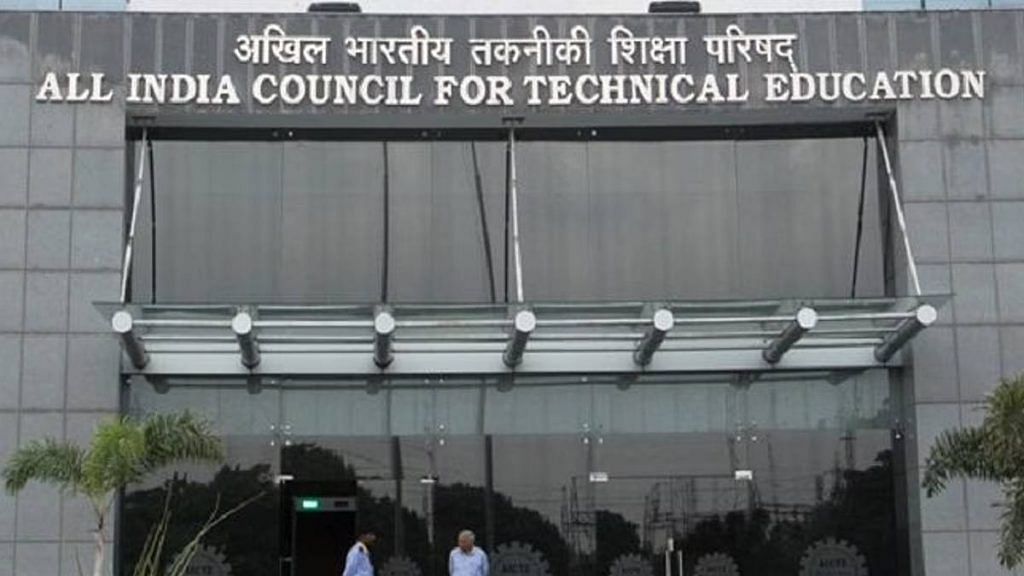New Delhi: Disciplines like ‘public health engineering’ and ‘communication and security engineering’ could soon join the list of courses being offered in the country’s engineering colleges.
An expert committee — that recommended the extension of the moratorium on opening of new engineering colleges in the country in a report submitted in December last year — also suggested that “industry-relevant” disciplines like the aforementioned two be introduced in existing colleges.
While public health engineers are professionals involved in tackling issues affecting public health such as water and waste management, besides environmental health, the role of communication & security engineers may involve protecting sensitive information from cyberattacks, among other things.
The All India Council for Technical Education (AICTE) has implemented both suggestions in its Approval Handbook 2022-23 — a rule book for technical colleges — released Tuesday.
The expert committee report, a copy of which is with ThePrint, also said that traditional disciplines like mechanical engineering, civil engineering and electrical engineering, are in an “urgent need of revamp”.
Headed by B.V.R. Mohan Reddy, chairman of the IIT Hyderabad Board of Governors, the committee said no new engineering colleges should be allowed to start, except those in new disciplines.
The committee was constituted in October 2021 for “Reviewing Moratorium on Approval to New Engineering Institutions from Academic Year 2022-23 onwards”, and reviewed the intake capacity, trends of enrolment and placements in undergraduate, postgraduate and diploma programs in AICTE-approved institutions.
The extension of the moratorium from 2022 to 2024 was based on the finding that enrolment in traditional disciplines like mechanical engineering, civil engineering and others was low.
Also read: Engineering, management students under AICTE to be tested for learning levels, employability
Catering to industry needs
According to the committee’s report, titled the National Perspective Plan, the council was asked to “introduce industry-relevant” disciplines, such as ‘communication and security engineering’, ‘manufacturing engineering’, ‘transport engineering’, ‘energy engineering’, ‘information engineering’, ‘public health engineering (water, environment, pollution, sewage etc)’, healthcare engineering, computational engineering, environmental engineering, and geomatics/geospatial science & technology/geoinformatics.
The committee has also suggested new specialisations, such as microelectronics and very large-scale integration (VLSI), smart mobility, electric vehicle (EV) technology, transportation, highway engineering, renewable energy, climate change, earth system sciences, future communications, especially 5G, sustainable development & circular economy, waste management, product design and AI-plus technologies.
Talking about the core disciplines, the committee added: “Core disciplines need urgent revamp to cater to the rapidly evolving needs of the industry and rapid changes occurring in technologies. Core engineering industry should proactively support engineering institutes to produce engineers of the required skill set in their own interest.”
This would also help students in finding jobs in the future, it said.
The committee further suggested that “each engineering industry should tie up with or adopt core engineering departments of at least 3-5 engineering colleges, help them develop curricula in core engineering branches, and mentor the students and faculty.”
It also called for the total number of credits for graduation to be reduced from the current 160-180 to 135-140.
“The objective is to encourage students to give more time to self-study, group discussions/projects and peer-group learning. This would nurture the culture of self-directed learning as opposed to being confined to passive classroom learning for more time,” the committee said.
(Edited by Poulomi Banerjee)
Also read: Engineering seats in India hit 10-year low, while management seats continue to grow
